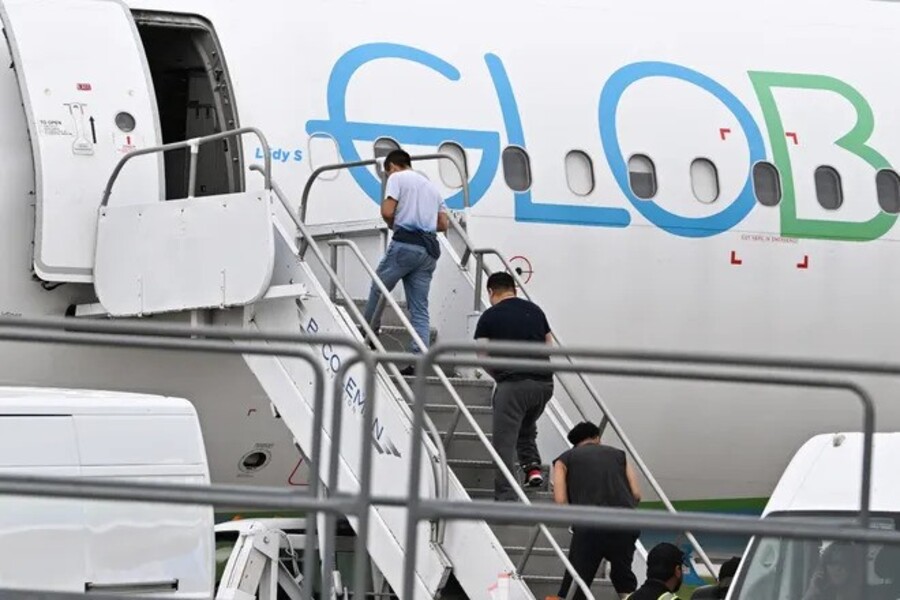Immigration and Customs Enforcement (ICE) may now deport migrants to third countries — nations that are not their country of origin — with as little as six hours’ notice under a new policy issued by the Trump administration. The memo, dated July 9 and signed by ICE Acting Director Todd Lyons, outlines a dramatic escalation in deportation procedures, allowing for expedited removals that bypass traditional protections in certain circumstances.
Ordinarily, ICE gives a minimum of 24 hours’ notice before deporting an individual to a third country. However, the memo states that in “exigent circumstances,” that notice period can be shortened to just six hours, provided the migrant has been allowed to speak with an attorney. These third-country deportations can occur without further legal procedures, as long as the receiving country has guaranteed not to persecute or torture the individual.
This policy shift follows a June decision by the U.S. Supreme Court that lifted a lower court’s injunction requiring migrants to be screened for fear of persecution before being sent to another country. In response, the administration promptly deported eight individuals from Cuba, Mexico, Myanmar, Sudan, Laos, and Vietnam to South Sudan — a nation experiencing ongoing civil unrest.
The memo has sparked alarm among immigration advocates and legal experts. Trina Realmuto, a lawyer at the National Immigration Litigation Alliance, criticized the policy as lacking adequate legal safeguards. She argues that the measure “falls far short of providing the statutory and due process protections that the law requires,” especially for migrants who may be thrust into dangerous environments or countries where they have no ties or ability to communicate.
The Trump administration is simultaneously seeking new agreements with foreign nations to accept third-country deportees. According to Reuters, officials have approached several African countries — including Liberia, Senegal, Guinea-Bissau, Mauritania, and Gabon — requesting that they accept deportees from other regions. This move indicates a broader strategy to expand deportation capacity globally.
Although third-country deportations have occurred in the past, they were typically rare. During Trump’s previous term, small numbers of Salvadorans and Hondurans were deported to Guatemala. President Joe Biden later negotiated with Mexico to accept thousands of migrants from Cuba, Haiti, Venezuela, and Nicaragua, largely due to the difficulty in repatriating them directly.
This latest policy was submitted as evidence in a legal case involving Kilmar Abrego Garcia, a Maryland resident who was allegedly wrongfully deported to El Salvador. Legal experts suggest this case — and others like it — may serve as a foundation for challenging the legality of fast-track deportations under constitutional and international law.
The new guidance underscores the Trump administration’s broader efforts to intensify deportations and reduce the time migrants have to contest their removal. If implemented broadly, it could significantly increase the number of rapid, third-country deportations and reduce the ability of migrants and legal advocates to intervene in time.
While the administration argues this will help remove individuals who have no legal right to remain in the U.S., critics warn it may expose vulnerable people to danger and erode due process rights in the name of immigration enforcement efficiency. The full impact of this policy remains to be seen, but legal challenges and public scrutiny are already mounting.
